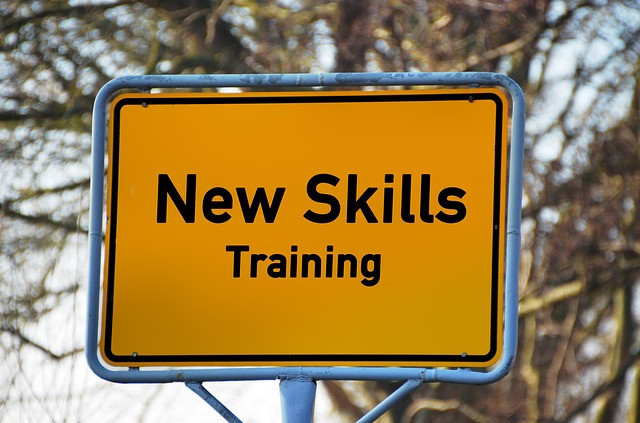How To Deliver A Great Client Experience As A Highly Effective Freelancer
Learning how to deliver a great client experience is the cornerstone of success for every freelancer aspiring to thrive in today’s competitive market.
Whether you’re embarking on your freelance journey or seeking to refine your client interactions, mastering this skill is crucial.
In this comprehensive guide, we delve into effective strategies and actionable tips on how to deliver a great client experience as a highly effective freelancer.
To deliver a great client experience begins with understanding the fundamental pillars of client satisfaction.
It’s not merely about delivering a service but creating lasting impressions through professionalism, reliability, and exceeding expectations.
By prioritizing clear communication, responsiveness, and personalized service, freelancers can cultivate strong, trusting relationships that foster repeat business and enthusiastic referrals.
Understanding how to Deliver A Great Client Experience requires a multifaceted approach.
Firstly, it involves actively listening to client needs and preferences, ensuring every deliverable aligns seamlessly with their expectations.
Secondly, it demands a proactive mindset—anticipating challenges before they arise and offering solutions swiftly.
Thirdly, consistency is key: from initial contact to project completion, maintaining high standards ensures clients feel valued and respected throughout the collaboration.
Moreover, mastering how to Deliver A Great Client Experience necessitates embracing feedback as a catalyst for growth.
Constructive criticism provides invaluable insights into refining one’s approach, ensuring continuous improvement and client satisfaction.
By integrating these principles into your freelance practice, you not only enhance your professional reputation but also lay a solid foundation for long-term success.
In the following sections, we’ll explore proven techniques and real-world examples that highlight the transformative power of Delivering A Great Client Experience in building a thriving freelance career.
How To Deliver A Great Client Experience As A Freelancer
-
Understand your clients’ needs
Take the time to understand your client’s specific needs and expectations. This will help you deliver work that meets their expectations and provides value to their business.
To understand your clients’ needs, it’s important to listen actively to them and ask questions to clarify their requirements.
You should try to put yourself in their shoes and understand their perspective. Also, you can do some research on your clients’ industry and competitors to gain insights into their needs and pain points.
Once you have a good understanding of your clients’ needs, you can tailor your products or services to meet those needs.
It’s important to communicate clearly with your clients throughout the process, to ensure that you are meeting their expectations and that they are satisfied with the results.
Remember that understanding your clients’ needs is an ongoing process, and you should be open to feedback and willing to adapt your approach as their needs evolve over time.
By building strong relationships with your clients and consistently delivering value, you can ensure long-term success for both yourself and your clients.
-
Set clear expectations and objectives
From the outset, work with your client to establish clear goals and objectives for your project. This will help you stay focused and deliver work that is aligned with their needs.
Setting clear expectations and objectives is essential for achieving success in any project or business relationship.
Here are some tips to help you set clear expectations and objectives to deliver a great client experience.
- Define the scope of the project: Be clear about what you can and cannot deliver, what resources you will need, and what the timelines will be.
- Clarify goals and objectives: Understand what the client wants to achieve, and ensure that everyone involved in the project is aware of the objectives and what success looks like.
- Establish communication channels: Agree on how you will communicate with your client and how often, and make sure that you are available to address any questions or concerns.
- Set realistic timelines: Be realistic about how long each phase of the project will take and factor in any potential delays.
- Anticipate potential issues: Be proactive in identifying potential issues or risks, and have a plan in place to address them if they arise.
- Get agreement and buy-in: Ensure that your client agrees to the expectations and objectives you have set, and that they understand their role and responsibilities in achieving them.
By setting clear expectations and objectives, you can ensure that everyone involved in the project is aligned and working towards the same goals, which will increase the chances of success.
Also, make sure to clearly communicate your rates, availability, and what your clients can expect from working with you.
This will help avoid any misunderstandings and set the tone for a positive working relationship.
-
Be responsive to your clients’ needs

Make sure to respond promptly to your client’s inquiries and messages. This shows that you value their time and are committed to providing excellent service.
Being responsive to your clients’ needs is a key element of building and maintaining strong client relationships.
Here are some tips to help you be responsive to your clients’ needs to deliver a great client experience
- Be available: Make yourself available to your clients, whether it’s through email, phone, or in-person meetings. Respond to their messages and inquiries promptly, even if it’s just to acknowledge receipt and let them know when you’ll provide a more detailed response.
- Listen actively: When communicating with your clients, listen actively to their needs and concerns. Clarify their requirements and ask follow-up questions to ensure that you fully understand what they need.
- Communicate regularly: Keep your clients informed about the progress of their project, and provide regular updates on any changes or issues that arise. This will help them feel informed and engaged in the process.
- Be proactive: Anticipate your clients’ needs and offer solutions or suggestions before they even ask. This will demonstrate your commitment to their success and help build trust.
- Follow through on commitments: If you make a commitment to your client, make sure you follow through on it. This will show that you are reliable and trustworthy.
- Provide excellent customer service: Treat your clients with respect, professionalism, and kindness. Be patient and understanding, even if they are frustrated or upset.
By being responsive to your client’s needs, you can build strong, long-term relationships based on trust and mutual respect.
This will not only benefit your clients but also your business, as satisfied clients are more likely to refer you to others and continue working with you in the future.
-
Communicate regularly with your clients
Keep your clients in the loop by providing regular updates on your progress and any changes to your timeline or scope of work. This will help build trust and confidence in your work.
Regular communication with your clients is essential to building strong relationships, establishing trust, and ensuring that your projects or services meet their needs.
Here are some tips to help you communicate regularly with your clients to deliver a great client experience
- Set up regular check-ins: Schedule regular meetings or calls with your clients to discuss the status of their projects, address any concerns or issues, and provide updates on your progress. This will help keep everyone on the same page and ensure that the project is moving forward as expected.
- Use a variety of communication channels: Some clients may prefer to communicate via email, while others may prefer phone or in-person meetings. Use a variety of communication channels to ensure that you are meeting your clients’ preferences and needs.
- Provide timely responses: Respond to your clients’ messages and inquiries as quickly as possible, even if it’s just to let them know that you received their message and will provide a more detailed response soon.
- Be transparent: Be honest and transparent with your clients about any issues or challenges that arise during the project. This will help build trust and show that you are committed to finding solutions.
- Provide regular progress reports: Provide regular progress reports to your clients, outlining what has been accomplished, what is currently in progress, and what is planned for the future. This will help your clients feel informed and engaged in the project.
- Ask for feedback: Ask your clients for feedback on how you are doing and what you can do to improve. This will demonstrate your commitment to their satisfaction and help you identify areas for improvement.
By communicating regularly with your clients, you can establish strong, long-lasting relationships based on trust, transparency, and mutual respect.
This will help ensure that your clients are satisfied with your services and more likely to refer you to others in the future.

-
Pay attention to detail
Deliver work that is accurate and well-crafted. Pay close attention to details such as spelling, grammar, and formatting.
Paying attention to detail is essential in any business or professional setting.
It helps you to ensure that your work is accurate, consistent, and of high quality, which can improve your reputation and increase your chances of success.
Here are some tips to help you pay attention to detail to deliver a great client experience
- Double-check your work: Take the time to review your work carefully, looking for any errors or inconsistencies. This can help you catch mistakes before they become bigger problems.
- Use checklists: Create checklists or templates for tasks that you do regularly, such as sending emails or preparing reports. This can help ensure that you don’t forget any important details.
- Take breaks: Taking short breaks can help refresh your mind and improve your focus. This can help you catch mistakes that you might have missed if you were working for an extended period.
- Ask for feedback: Ask a colleague or supervisor to review your work and provide feedback. This can help you identify areas for improvement and catch mistakes that you might have missed.
- Stay organized: Keep your workspace and files organized so that you can easily find what you need. This can help you avoid mistakes that can arise from confusion or disorganization.
- Be patient: Take the time to do things right, even if it means taking a little longer. This can help you produce work that is accurate and of high quality.
By paying attention to detail, you can improve the quality of your work, build your reputation, and increase your chances of success.
-
Be flexible with your approach
Be willing to adjust your approach or deliverables to meet your clients’ needs. This shows that you are attentive to their needs and committed to delivering results that meet their expectations.
Being flexible with your approach is an important skill that can help you succeed in business and in life.
Here are some tips to help you be more flexible to deliver a great client experience
- Understand the situation: Before deciding on an approach, take the time to understand the situation and the needs of your clients or stakeholders. This will help you determine the best course of action.
- Be open-minded: Be willing to consider different perspectives and approaches, even if they differ from your own. This can help you identify new opportunities and solutions.
- Adapt to changing circumstances: Circumstances can change quickly, so be prepared to adjust your approach as needed. This can help you stay agile and responsive.
- Communicate clearly: Communicate your approach clearly to your clients or stakeholders, explaining the rationale behind your decisions. This can help build trust and understanding.
- Be willing to experiment: Don’t be afraid to try new approaches or experiment with different solutions. This can help you discover new opportunities and ways of doing things.
- Learn from mistakes: If an approach doesn’t work out as expected, take the time to learn from the experience. This can help you improve your approach and avoid making the same mistake in the future.
By being flexible with your approach, you can adapt to changing circumstances, identify new opportunities, and improve your chances of success.
It can also help you build stronger relationships with your clients and stakeholders, as they will appreciate your willingness to work with them to find the best solutions.
-
Provide high-quality freelance work
Deliver work that exceeds your clients’ expectations in terms of quality and attention to detail. This will demonstrate your expertise and commitment to delivering value to your clients.
Providing high-quality freelance work is essential to building a successful career as a freelancer.
Here are some tips to help you provide high-quality freelance work to deliver a great client experience
- Understand the project requirements: Take the time to understand the project requirements, including the scope, timelines, and deliverables. This will help you produce work that meets your client’s expectations.
- Communicate regularly: Regular communication with your client can help ensure that you are on the same page, and it will help you identify any issues or concerns early on.
- Deliver on time: Meeting project deadlines is critical to building trust with your clients. If you cannot meet a deadline, communicate this as early as possible and negotiate a new timeline.
- Be organized: Use project management tools to help you stay organized, track progress, and meet deadlines. This will also help you ensure that you don’t miss any important details.
- Be responsive: Respond to your clients’ messages and inquiries in a timely manner, even if it’s just to let them know that you received their message and will provide a more detailed response soon.
- Pay attention to detail: Pay attention to detail and review your work carefully to ensure that it is accurate and of high quality.
- Provide revisions: Be willing to provide revisions if your client requests them. This will help ensure that the final product meets their expectations.
By providing high-quality freelance work, you can build a reputation for excellence, earn repeat business from clients, and attract new clients through referrals.
It can also help you command higher rates for your services, making it easier to achieve financial success as a freelancer.
-
Be professional in your conduct
Maintain a high level of professionalism in all your communications and interactions with your clients. This includes being respectful, reliable, and delivering work on time.
Being professional in your conduct is essential to building a successful career as a freelancer.
Here are some tips to help you be professional to deliver a great client experience
- Set clear expectations: Set clear expectations with your clients about what you will deliver, when you will deliver it, and how much it will cost. This will help avoid misunderstandings and ensure that everyone is on the same page.
- Be reliable: Deliver on your commitments and meet deadlines. If you cannot meet a deadline, communicate this as early as possible and negotiate a new timeline.
- Communicate effectively: Communicate with your clients clearly and professionally, using appropriate language and tone. This will help build trust and ensure that everyone is on the same page.
- Dress appropriately: If you meet your clients in person, dress appropriately for the occasion. This will help demonstrate your professionalism and show that you take your work seriously.
- Be respectful: Show respect to your clients, colleagues, and stakeholders, even if you don’t agree with their opinions or ideas.
- Keep confidences: Keep confidential information confidential, and don’t share sensitive information without permission.
- Handle conflicts professionally: If conflicts arise, handle them professionally and respectfully. Seek to find a mutually acceptable solution that meets everyone’s needs.
By being professional in your conduct, you can build a reputation for excellence, earn repeat business from clients, and attract new clients through referrals.
It can also help you command higher rates for your services, making it easier to achieve financial success as a freelancer.

-
Go above and beyond
Surprise your clients by going above and beyond their expectations. This could mean delivering your work ahead of schedule, providing additional resources or insights, or offering a small gift or token of appreciation.
Going above and beyond for your clients can help you stand out from the competition and build a strong reputation as a freelancer.
Here are some tips to help you go above and beyond to deliver a great client experience
- Understand your client’s needs: Take the time to understand your client’s needs, goals, and preferences. This will help you identify opportunities to provide additional value and exceed their expectations.
- Offer creative solutions: Think outside the box and offer creative solutions that go beyond the scope of the project. This can help you demonstrate your expertise and add value to your client’s business.
- Provide exceptional service: Provide exceptional service by being responsive, communicative, and reliable. This can help you build a strong relationship with your clients and earn their trust and loyalty.
- Anticipate needs: Anticipate your client’s needs and offer proactive solutions. For example, if you notice that they need additional support or resources, offer to help them find what they need.
- Provide extra resources: Provide additional resources or information that can help your client achieve their goals. For example, if you’re a writer, you might provide a list of industry publications or blogs that could be of interest to your client.
- Deliver early: Deliver your work early, if possible, to give your client more time to review and provide feedback. This can help demonstrate your commitment to quality and your willingness to go the extra mile.
By going above and beyond for your clients, you can build a reputation for excellence and earn repeat business and referrals.
It can also help you stand out from the competition and command higher rates for your services.
-
Always Meet deadlines
Deliver work on time and within the agreed-upon deadline. This shows that you respect your client’s time and are committed to delivering high-quality work.
Meeting deadlines is an important skill to have in both personal and professional settings.
Here are some tips to help you always meet deadlines to deliver a great client experience
- Plan ahead: Make a plan and schedule for the tasks that need to be completed before the deadline. Break the tasks into smaller, manageable pieces and set deadlines for each of them.
- Prioritize tasks: Prioritize your tasks based on their importance and urgency. This will help you focus on the most critical tasks and complete them first.
- Avoid procrastination: Procrastination can cause unnecessary stress and lead to missed deadlines. Set specific times to work on tasks and avoid distractions.
- Communicate with stakeholders: If you’re working on a project with others, communicate with them regularly to ensure that everyone is on the same page and working towards the same goal.
- Stay organized: Keep track of your deadlines, schedules, and progress. Use tools like calendars, to-do lists, and project management software to help you stay organized.
Remember, meeting deadlines is not only about being efficient but also about being reliable and trustworthy.
It shows that you take your commitments seriously and can be counted on to deliver on time.

-
Be open to feedback
Be open to feedback from your client and use it to improve the quality of your work. This shows that you are committed to delivering the best possible service to your client.
Being open to feedback is an important skill to have in both personal and professional settings.
Here are some tips to help you be open to feedback to deliver a great client experience:
- Listen actively: When receiving feedback, listen carefully and try to understand the other person’s perspective. Ask questions to clarify any points that are unclear.
- Avoid becoming defensive: It can be challenging to hear criticism, but it’s important to avoid becoming defensive. Instead, try to stay calm and objective, and focus on understanding the feedback rather than taking it personally.
- Take time to reflect: After receiving feedback, take some time to reflect on what was said. Consider the feedback objectively and determine what you can learn from it.
- Use feedback to improve: Feedback is an opportunity to learn and grow. Use it to identify areas where you can improve and make changes that will help you become more effective in your personal and professional life.
- Thank the person for the feedback: It’s important to show gratitude for the feedback you receive, regardless of whether it was positive or negative. Thank the person for taking the time to provide feedback and let them know that you appreciate their perspective.
Remember, being open to feedback is an ongoing process that requires practice and self-reflection.
By developing this skill, you can improve your personal and professional relationships and become a more effective communicator.
-
Continuously improve your skills
To deliver a great client experience, you must stay up-to-date with industry trends and technologies. This will help you deliver work that is innovative and of high quality.
Continuously improving your skills is essential in both personal and professional development.
Here are some tips to help you continuously improve your skills to deliver a great client experience:
- Set goals: Identify the skills you want to improve and set specific goals for yourself. Make sure your goals are measurable and achievable.
- Create a plan: Develop a plan for how you will achieve your goals. Break down your goals into smaller, more manageable steps and create a timeline for when you will complete each step.
- Learn from others: Seek out mentors or colleagues who have the skills you want to improve. Ask for their guidance, feedback, and advice.
- Seek out training opportunities: Take advantage of training opportunities that can help you improve your skills. Attend workshops, conferences, and training sessions that focus on the areas you want to improve.
- Practice regularly: Practice is essential for improving any skill. Set aside time each day or week to practice the skills you want to improve.
- Get feedback: Ask for feedback from others to help you identify areas where you can improve. Be open to constructive criticism and use it to guide your efforts.
Remember, improving your skills is an ongoing process that requires commitment and dedication.
By continuously working to improve your skills, you can increase your value in the workplace, enhance your personal growth, and achieve your goals.
Conclusion
In concluding how to deliver a great client experience, it’s essential to focus on exceeding expectations consistently.
By prioritizing communication, responsiveness, and personalized service, you can cultivate strong client relationships that foster repeat business and referrals.
Remember, each interaction serves as an opportunity to showcase your professionalism and dedication.
Embrace client feedback as a catalyst for growth, continuously refine your processes, and remain adaptable to evolving client needs.
Ultimately, by placing client satisfaction at the forefront, you not only enhance your reputation but also establish the groundwork for sustained success in your freelance career.
Related Post
Learn How To Improve Your Skills As A Freelancer
Proven ways To Communicate Effectively As A Freelancer
How to Get High-Paying Clients as a Freelancer





